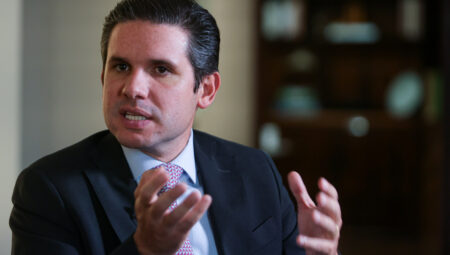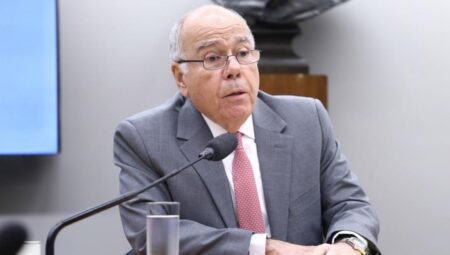Reporter for Estado de Minas since 2022, he writes for the Politics section, with contributions to the General, Economy, and ‘Thinking’ sections. He is a journalist graduated from the Federal University of Minas Gerais (UFMG).
The position of Governor Romeu Zema (Novo) regarding Brazil’s participation in Brics is under scrutiny. An analyst from the Getulio Vargas Foundation (FGV) explains that leaving the Brics group is unlikely despite Zema’s unclear statement. He also points out that even President Bolsonaro did not remove the country from the bloc during his term.
The uncertainties surrounding Zema’s evaluation of Brazil’s role in Brics have raised questions about the future of the country’s participation in the group. The FGV specialist emphasizes the importance of Brazil’s membership in Brics and the potential consequences of leaving the bloc. Despite Zema’s comments, the expert believes that the country’s exit from Brics is improbable and highlights the strategic partnerships within the group.
The journalist, with a background in Political Science from UFMG, delves into the complexities of Brazil’s involvement in Brics. He analyzes the potential impact of Zema’s statements on the country’s international relations and economic position within the group. The expert provides insights into the advantages of Brazil’s participation in Brics and the potential challenges of withdrawing from the alliance.
Zema’s ambiguous assessment of Brazil’s participation in Brics has sparked debate among political analysts and experts in international relations. The FGV analyst sheds light on the implications of the governor’s remarks and the importance of maintaining Brazil’s position within Brics. He underlines the benefits of the partnership for Brazil’s economy and geopolitical influence on the global stage.
The journalist’s coverage of Zema’s comments on Brics highlights the nuanced nature of the country’s involvement in the group. By examining the historical context of Brazil’s entry into Brics and the current geopolitical landscape, he offers a comprehensive analysis of the potential consequences of any decision to leave the alliance. The FGV specialist clarifies the complexities of Brazil’s role in Brics and emphasizes the strategic advantages of continued membership.
The analysis of Zema’s stance on Brics by the FGV expert provides valuable insights into the intricacies of Brazil’s relationship with the group. By exploring the economic and political implications of Brazil’s membership in Brics, the specialist offers a well-rounded perspective on the country’s position within the alliance. Despite the uncertainties raised by Zema’s comments, the expert’s explanation sheds light on the strategic importance of Brazil’s continued involvement in Brics.




